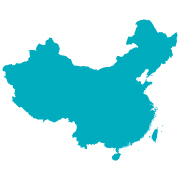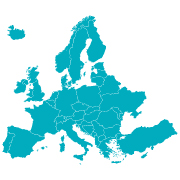Published on May 6, 2020 by Binayak Ransingh
The COVID-19 pandemic has disrupted the global economy significantly. It is reported to have spread to 175 countries, with thousands testing positive every day. The crisis has affected a wide range of industries, mostly the energy markets such as oil and gas, renewables and utilities. Restrictions on the movement of people and goods have impacted demand for transport fuels and electricity, and the lockdown of non-essential manufacturing plants, factories, construction work, commercial hubs, and offices has affected demand for heating fuels, electricity, and water. The lockdowns have hit not only power demand, but also cash flow of power distribution companies, leading to payment delays for power-generating and transmission companies. Renewable energy projects under construction or planned projects would also experience delays because of the disruption to the global supply chain caused by COVID-19.
Global fuel demand is, therefore, estimated at around 95 million barrels per day in 2020, 5% lower than in 2019, and global solar power demand at 108-143GW, a drop of 10% from the previous estimate of 121-152GW. If these forecasts were to hold true, 2020 would be the first year of such a large drop in solar capacity addition since the 1980s. This will likely derail the market for clean energy and clean technology globally.
The current pandemic has also taught us that global challenges have no borders. Hence, it is vital that nations take combined initiatives to deal with the situation. We mention below some regions whose clean energy sectors have been affected significantly and where their respective governments have already initiated/planned a response to mitigate the risk to clean energy development.
China: The first epicentre

China, a major supplier to the renewable energy equipment market. was the first epicentre of COVID-19. The temporary shutdown that was enforced there has affected the entire industry’s supply chain, leading to the emergence of a diversified supply chain globally and increasing the need for localised manufacturing of key components and equipment. If the global clean energy market kick-starts in the second half of 2020, we believe China’s renewable energy equipment market will also pick up pace.
US: Reporting the largest number of confirmed COVID-19 cases

The US recently overtook Italy and China to report the highest number of confirmed COVID-19 patients. This has forced the US government to take every possible step to control and minimise the outbreak in the country. Its renewable energy development for the year has, as a result of the outbreak, been completely wiped out. The wind and solar industries have been excluded from the government’s USD2tn economic stimulus package. We believe this will further expose the nation’s power sector to project delays and the risk of missing out on vital government incentives. The American Wind Energy Association has warned that 35,000 jobs and USD43bn of investment in the wind energy sector would be at stake because of the current situation.
Europe: In need of subsidy-based policies for clean energy

According to German energy advisory Enervis, the development of the unsubsidised large-scale solar project in Europe could come to a halt amid the current situation. Many power purchase agreements for solar projects have been delayed so far. Such projects, which were running on subsidy-free business models, may require subsidies by year-end. In addition, 96% of all wind manufacturing facilities were opened in Europe amid the COVID 19 pandemic, according to WindEurope (formerly the European Wind Energy Association), with subsequent facilities closures in Italy and Spain. Europe’s entire supply chain is affected by policy uncertainty and the restriction of movement of workers and goods across the continent. However, we expect the market to grow again when the situation is brought under control.
India: Has declared COVID-19 a natural calamity

India’s Ministry of New and Renewable Energy has reported that it considers the disruption of the supply chain in the renewable energy industry because of the outbreak in China a natural calamity. The government has, therefore, requested renewable energy developers to invoke force majeure clauses in the event their projects are delayed because of the pandemic. All deadlines for renewable energy projects in the development stage will be extended, considering the time required to remobilise the workforce after the government-declared lockdown period ends.
Australia: Boosted clean energy systems amid the pandemic

The Australian federal government’s response to COVID-19 includes the installation of industrial and commercial solar systems.
The government plans to increase the instant asset write-off threshold to AUD150,000 from AUD30,000 and expand the scope to include organisations with aggregate annual turnover of less than AUD500m (until 30 June 2020) versus organisations with aggregate annual turnover of less than AUD50m previously. This will encourage businesses to purchase and install equipment because of the 100% write-off.
The government has also accelerated the depreciation tax deduction under the “backing business investment” heading. Under the new policy, organisations with less than AUD500m in revenue will be able to deduct 50% of the cost of solar system equipment, in addition to complying with the existing depreciation rules relating to an asset’s cost in the balance sheet.
Australia’s renewable energy association, the Clean Energy Council, has suggested that the government include renewable energy and energy storage projects for investment at this time. The suggestions include the following:
-
The government should directly fund the installation of solar systems on low-income rental and public housing
-
It should actively install solar systems and storage backup for critical state infrastructure such as fire stations, police facilities and telecommunication
-
It should subsidise solar batteries for businesses and homes
-
It should increase funding for the installation of standalone power systems, micro grids, community batteries and other programmes for bushfire recovery
This would help to save jobs in the power sector, reduce energy costs and boost the Australian economy.
The effects of COVID-19 are likely to last for a while, but the threat of climate change would remain for longer.
Hence, we believe the world should not stop large-scale investment in the development, implementation and integration of clean energy technologies such as wind, solar, hydrogen, batteries and carbon capture. This would stimulate economies and accelerate the transition to clean energy.
To help our clients navigate both the people and business impact of COVID-19, we have created a dedicated hub containing a variety of topics including our latest thinking, thought leadership content and action oriented guides and best practices.
Sources:
https://www.csis.org/analysis/experts-react-covid-19-impacts-energy-sector
https://www.greenbiz.com/article/coronavirus-dampens-2020-outlook-clean-energy-and-electric-vehicles
https://www.greencarcongress.com/2020/03/20200313-bnef.html
https://time-com.cdn.ampproject.org/c/s/time.com/5808809/coronavirus-climate-action/?amp=true
Tags:
What's your view?
Comments
15-Sep-2020 01:23:41 am
Like the way we think?
Next time we post something new, we'll send it to your inbox






